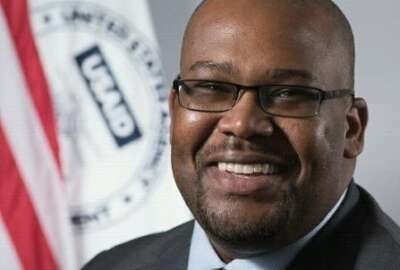
A thank-you to those on the line
Thank the people who do the hands on work of government. There are many but as we head into the last week of our annual May We Say Thank You campaign, Federal Drive...
A weird-looking group of people appears to possess fully-grown lions and tigers at a run-down ranch somewhere. A television show I’ve never seen apparently depicts their antics. They rode to Washington on a bus.
I know this because a television monitor runs continuously but silently in my studio, day after day. A daily show called “TMZ” features two men chatting about all sorts of other people with names like J-Lo and Drake. Maybe you’ve heard of them?
But such is the celebrity culture that the consumer airwaves are filled with hour after hour of observation and commentary about celebrated people. Why are they celebrated? Because they’re celebrities — all of it amplified by the empty calories of social media sensation.
I’m drawn to people who do the important work of the world, but about whom nobody “dishes.” In my work, they’re often career federal employees.
There are many but I’ll mention two, as we head into the last week of our annual May We Say Thank You campaign. One is Monica Ager Jacobsen, and attorney adviser in the Office of the Legal Adviser at the State Department. At 34 years old, she is part of the generation which agency leaders across government say they need to attract to federal work. She supports the State Department’s work in carrying out the Global Magnitsky Human Rights and Accountability Law, which lets the U.S. sanction foreign governmental functionaries who abuse civil rights.
As you can see from her Service to America Medals finalist write-up and our recent interview, Jacobsen is both an idealist and a detail-oriented lawyer. No matter how fervently she and her colleagues want to sanction someone bad, Jasobsen imposes strict legal requirements for the evidence they gather.
Her idealist side told me she wants to ensure the U.S. government and those around the world respect the rule of law, “including human rights law; [State Department work] really just felt like it was an opportunity that you couldn’t have anywhere else. And where there was an opportunity to affect real change in the world, speaking as the US government.”
Her legal-pad side told me, “We build very carefully crafted evidence-based packages that support these sanctions packages. So we’re not just saying as a blanket statement, ‘You know, we know these people are bad people’ … We build a very carefully crafted legal package that could hold up in a court of law if needed, because these are really serious consequences.”
Far from the world of Jacobsen but still under the federal umbrella you’ll find Paula Schelling. She’s the president of an AFGE local now, but she spent more than 30 years on the line as an Agriculture Department food safety inspector. Checking out factories processing chickens or cattle can be hard, dangerous work.
Sometimes inspectors have to wield a knife themselves, Schelling told me. Our discussion centered on personal protective equipment. “For the most part, PPE is helping you so that you’re not cutting your fingers when you’re slicing a lymph node or into a heart or into any type of what we would do for inspection,” Schelling said.
Here’s what the USDA itself says of poultry work: “Inspection program personnel observe the external and internal surfaces of each carcass. They also observe and
palpate the internal organs.”
How’d you like to do that for eight hours? Imagine if you’re inspecting a hog.
The system is far from perfect, but few people have practical worries about the chicken they slide into the oven or that steak they flop onto the grill.
At one level the government is all about seeming abstractions — laws, policies, measurements. But at the center of the system you find people like Jacobsen, whose idealism means proving the case against the Pakistani doctor who trafficked in human organs, or like Schelling, who deal hands-on with blood, bones, and guts.
Copyright © 2025 Federal News Network. All rights reserved. This website is not intended for users located within the European Economic Area.
Tom Temin is host of the Federal Drive and has been providing insight on federal technology and management issues for more than 30 years.
Follow @tteminWFED





